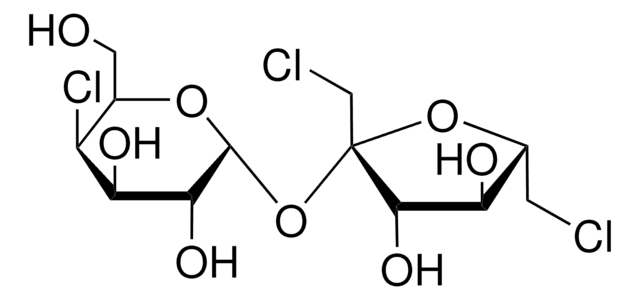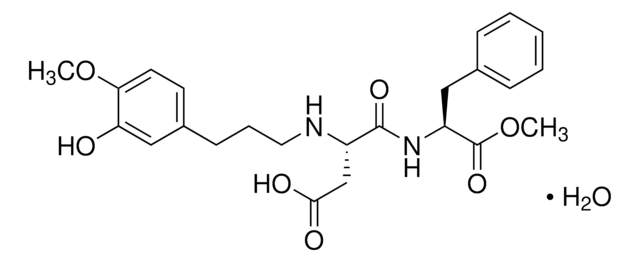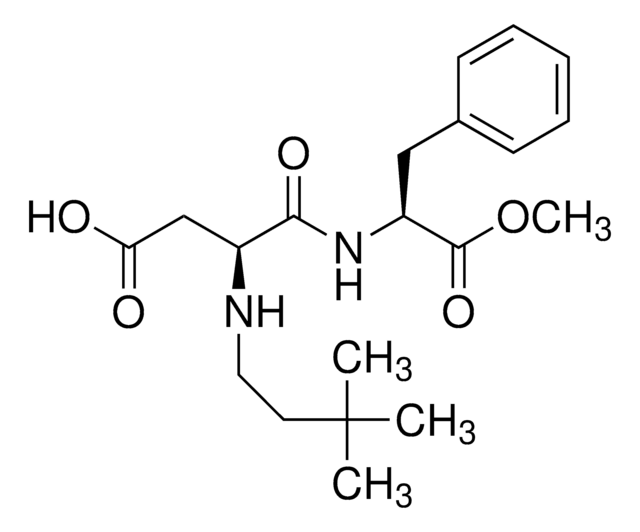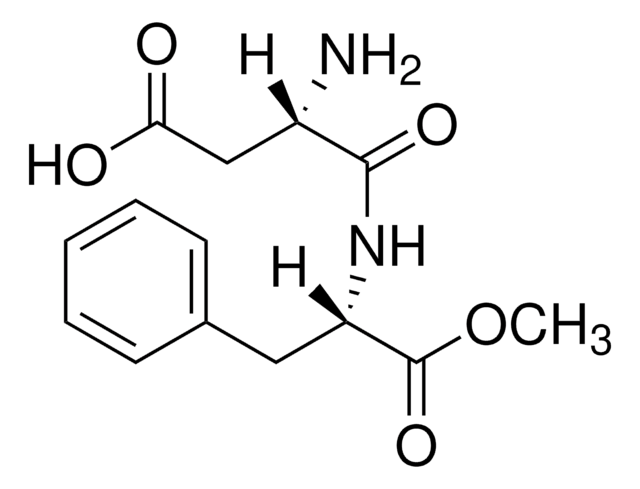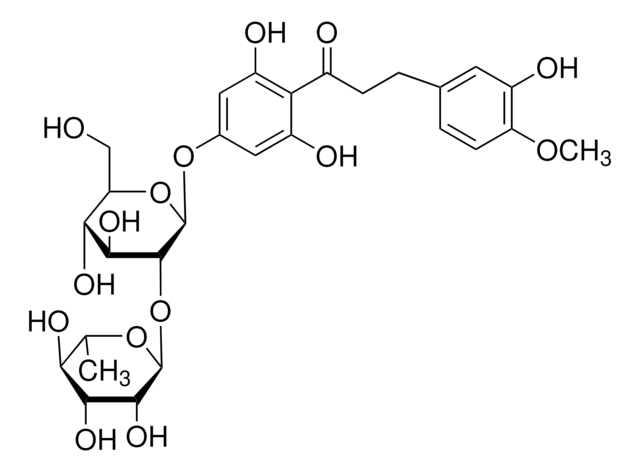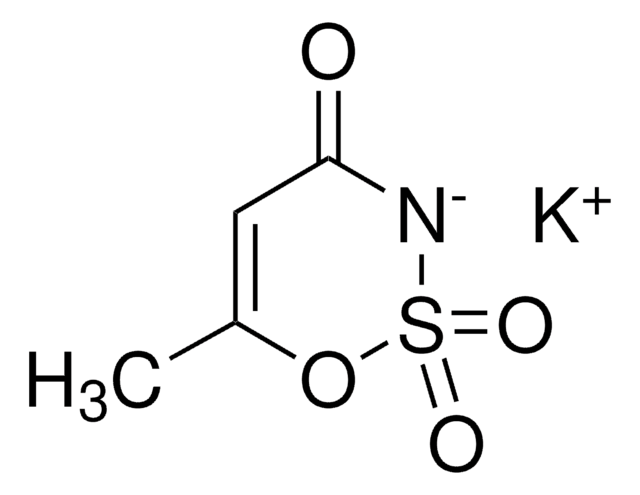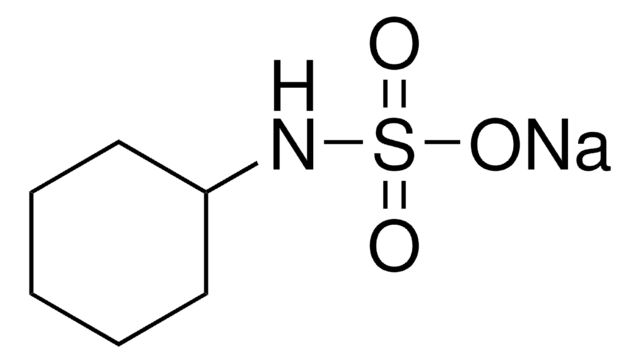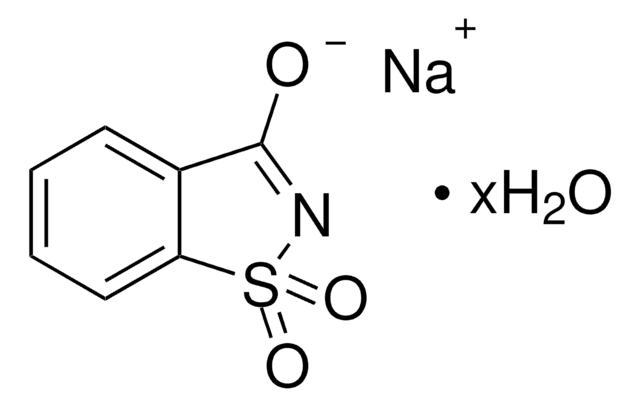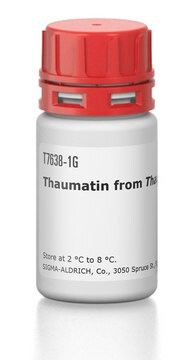49777
Neotame
analytical standard
Synonym(s):
N-[N-(3,3-Dimethylbutyl)-L-α-aspartyl]-L-phenylalanine 1-methyl ester
About This Item
Recommended Products
grade
analytical standard
Quality Level
Assay
≥98.0% (HPLC)
optical activity
[α]/D -41.0±3.0°, c = 0.5 in H2O
shelf life
limited shelf life, expiry date on the label
technique(s)
HPLC: suitable
gas chromatography (GC): suitable
application(s)
cleaning products
cosmetics
food and beverages
personal care
format
neat
SMILES string
COC(=O)[C@H](Cc1ccccc1)NC(=O)[C@H](CC(O)=O)NCCC(C)(C)C
InChI
1S/C20H30N2O5/c1-20(2,3)10-11-21-15(13-17(23)24)18(25)22-16(19(26)27-4)12-14-8-6-5-7-9-14/h5-9,15-16,21H,10-13H2,1-4H3,(H,22,25)(H,23,24)/t15-,16-/m0/s1
InChI key
HLIAVLHNDJUHFG-HOTGVXAUSA-N
Looking for similar products? Visit Product Comparison Guide
General description
Application
- Wine samples using reversed-phase high-performance liquid chromatography (RP-HPLC).
- Wastewaters using hydrophilic interaction liquid chromatography (HILIC).
- Food samples using high-performance liquid chromatography (HPLC).
Packaging
Storage Class Code
11 - Combustible Solids
WGK
WGK 3
Flash Point(F)
Not applicable
Flash Point(C)
Not applicable
Choose from one of the most recent versions:
Already Own This Product?
Find documentation for the products that you have recently purchased in the Document Library.
Customers Also Viewed
Protocols
RP-Amide and HILIC, both amenable to the analysis of polar compounds, were successfully used to resolve several beverage components, including sugars, vitamins, sweeteners, preservatives, and caffeine.
Our team of scientists has experience in all areas of research including Life Science, Material Science, Chemical Synthesis, Chromatography, Analytical and many others.
Contact Technical Service
